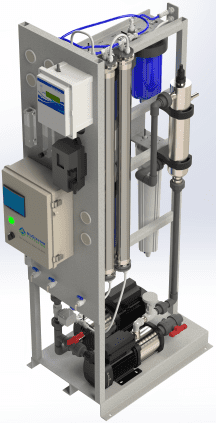AAMI ST108 serves as the successor to the AAMI TIR34 standard. It outlines specific water quality classifications tailored to various stages of medical device reprocessing. Each classification has its own set of stringent criteria, ensuring the water used is appropriate for its intended purpose.
At ChemREADY, we understand the critical role sterile processing departments (SPDs) play in patient safety. Reprocessing medical devices effectively requires meticulous attention to detail, and water quality is a cornerstone of this process. The new AAMI ST108 standard sets stringent guidelines for water purity to minimize patient risk.
This standard encompasses various aspects of water quality, including:

AAMI ST108 testing and consulting services empower healthcare facilities to achieve and maintain compliance with the standard. These services typically involve:
AAMI ST108 testing and consulting services play an indispensable role in safeguarding patient safety during medical device reprocessing. By ensuring water quality adheres to the AAMI ST108 standard, these services minimize the risk of HAIs, extend device lifespan, and contribute to a more cost-effective healthcare system. By partnering with qualified testing and consulting providers, healthcare facilities can confidently navigate the complexities of medical device reprocessing and prioritize patient well-being.
Contact ChemREADY today to schedule a consultation. Let us help you navigate AAMI ST108 and ensure the continued safety of your patients.
AAMI ST108 is the standard that sets stringent water quality requirements for the reprocessing of medical devices. It ensures that the water used is of the highest quality to minimize patient risks during reprocessing.
ChemREADY provides comprehensive testing and consulting services, including gap analysis, water quality testing, and the development of monitoring programs to ensure full compliance with AAMI ST108 standards.
Key components include microbiological quality, physical and chemical properties, and monitoring and control procedures to ensure water meets the necessary standards for safe medical device reprocessing.
Poor water quality can lead to the contamination of medical devices, increasing the risk of healthcare-associated infections (HAIs) and compromising patient safety.
Facilities can expect reduced patient risks, improved efficiency, regulatory compliance, and enhanced staff knowledge, all contributing to better overall healthcare outcomes.